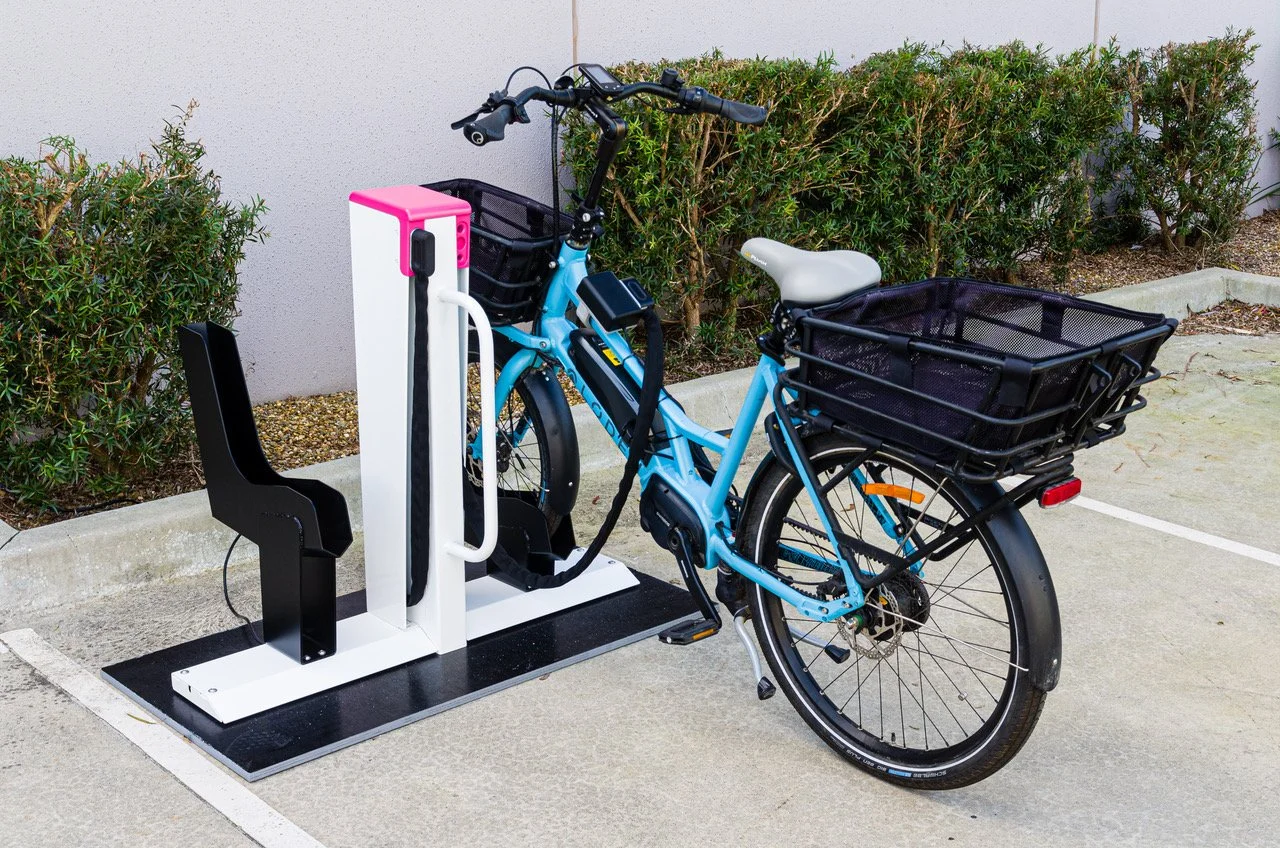Changing the Culture: Insights from the E-Micromobility Trial at Fishermans Bend
The recent e-mobility trial led by NTRO and startup microFleet has brought valuable insights - not just into electric vehicle use, but into how we plan, regulate, and adopt new transport systems in Victoria. From early safety planning to broader questions about public transport integration, the trial provided real-world data that could help shape the future of micromobility beyond precinct planning in Fishermans Bend. Project partners Ronny Kutadinata (NTRO) and Al Reid (microFleet) recently presented the project outcomes in the FB IDEAs Hub.
“Microfleet partnered with FB IDEAs and NTRO to pilot its universal e-mobility platform in Fishermans Bend in 2025. This test bed was critical to our development: it revealed myriad technical, environmental, regulatory and user experience challenges we needed to address to refine and improve our platform. It also overcame the 'first customer' barrier to help unlock further partner and investment opportunities. We highly recommend FB IDEAs as a partner to help test, develop and commercialise new ideas.”
— Al Reid, MicroFleet
Planning for Safety: A Hidden Cost
For project partner NTRO the biggest learnings emerged during the early stages: Safety comes in three parts, each demanding more time, effort and resources than expected. Starting with facility safety, especially fire safety concerns, which determined the location of the charging station. Then, as company assets, the e-bikes and e-scooters required documented safety checks and tracked regular maintenance - so Ronny Kutadinata stepped in himself to make sure all vehicles were safe to use. Lastly, for rider safety, all responsibilities had to be documented in user agreements, with each participant required to obtain personal rider insurance (available via membership at the Bicycle Network). This was particularly crucial in Victoria, where commuting to and from work is not covered by WorkCover.
While particularly challenging for a short-term trial, these hurdles they solved offer valuable insights for others looking to launch their own e-mobility fleets. They provide a chance to "step in at the peak of the first learning curve" rather than start from scratch.
Understanding Usage Patterns and Barriers
While e-bikes and e-scooters were expected to be more suitable for shorter trips, the two regular users frequently commuted from and to home. However, survey feedback revealed that for others, the vehicles were less attractive due to cost (here mainly due to the insurance) and lack of necessity. The core challenge overall was found to be balancing affordability with the value of time spent traveling - two often competing factors. This feedback sparked a broader discussion on how improving connectivity between public transport and e-mobility could improve long distance travelling.
The Startup Perspective: MicroFleet's Vision
Al Reid, CEO of startup microFleet presented the company’s perspective on the trial and offered a compelling critique of the current shared light electric vehicle (LEV) landscape and policy background.
He showed the gaps in our shared light electric vehicles (LEV) fleet culture - with fleets being monocultures catering for a narrow demographic, but not serving people with disabilities, parents or people wanting to transport things. Further, he pointed out charging issues with poor-quality batteries going up in flames and cluttering of public space with hire e-bikes and e-scooters.
MicroFleet's response is the Onedock, a charging station developed to cleanly and safely integrate a wide range of light electric vehicles into public or private fleets. The technology via a device which can be installed on all types of e-vehicles allows bikes, scooters, cargo bikes - even electric wheelchairs - to be docked, locked, and charged safely at designated stations. Each vehicle is trackable and managed through an app, which users can also use to find, book, and unlock them.
Backed by the FB IDEAs grant, the trial gave microFleet the opportunity to test and refine their technology in a live setting, helping them overcome the common “first customer” barrier that so many startups face. The result is a stronger, improved platform ready for broader implementation.
Policy, Regulation & Future Opportunities
Looking past the pilot, new challenges arose for microFleet. They found that policies in place do not support the inclusion of e-micromobility in the public transport system and that legal and insurance requirements make it difficult to convince businesses to invest in their own fleets to be used for commuters.
Exploring future options, Al presented international policies and systems, revealing a wide variety of options that could be adapted locally. These ranged from government-owned fleets in the Netherlands to community bike libraries and corporate e-bike subsidies that reduce emissions while improving staff health.
Private charging was identified as a major roadblock. This is true not only for student accomodations and residential strata developments, but also for workplaces. Looking past corporate life, we heard that the problem extends even to golf carts which can't be charged at certain golf clubs anymore due to safety concerns.
Without regulation, poor-quality batteries continue to enter the market, leading to fire risks and increasing insurance costs. Some of the potential solutions discussed include battery labelling to track quality and safety, better regulation of what batteries can be sold in Australia, and real-time monitoring of battery health through high-standard battery management systems. It became clear that high-quality systems don’t pose the same risks and the industry needs clear rules and support to build trust and grow responsibly. Which way the policy may go is open, but the audience in the room was positive that there are ways to solve this issue.
Building Momentum for a Cultural Shift
The conversation went beyond regulation and discussed infrastructure needs and space allocation in our city and town centers. High value inner-city real estate next to train stations can either be a car park for a single vehicle, or become an e-bike and e-scooter park for 8 vehicles. For a large-scale adaptation, a cultural shift is needed in the first place, one step - such as the E-Micromobility in Fishermans Bend Trial - at a time. So while it may seem that Victoria is behind, momentum is building. At the local level, innovation is already happening.
Takeaways for Next Steps Past the Trial
For Ronny, it’s about continuing the mindset shift and sharing knowledge. Giving people a chance to try e-mobility, combined with better route planning and safer bike infrastructure, is the next logical step. For Al, it’s finding more local pilot opportunities across Melbourne. Different communities have different needs and learning how diverse user groups engage with e-mobility is essential for scaling adoption.
He pointed just across the street in Fishermans Bend, where the City of Port Phillip is already trialling new solutions. Cargo bikes through community libraries, electric fleets within council operations - these aren’t just ideas, they’re happening now.
The takeaway for us today: When it’s done with safety, quality, and accessibility in mind, e-micromobility becomes a powerful tool for building more connected, sustainable communities. From local councils, research organisations to startups, everyone has a role to play.




